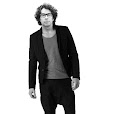
I have to admit my enormous admiration for Atom Egoyan. I don’t exaggerate when I think that perhaps not since Alfred Hitchcock has a filmmaker married eroticism and fear with stylish virtuosity. In "Chloe," which Egoyan directed from a script by Erin Cressida Wilson ("Secretary," "Fur: An Imaginary Portrait of Diane Arbus"), Julianne Moore plays a Toronto gynecologist named Catherine who suspects her husband, David (Liam Neeson), is having an affair. When she crosses paths with a beautiful young woman named Chloe (Amanda Seyfried), Catherine immediately sees the perfect opportunity to bait a sexual trap for David. She was not aware that this plan that will have unexpected, possibly tragic and fatal results.
With its evocative modern minimalist settings, "Chloe" is a treat to look at, with Egoyan taking a fetishistic interest in every little detail, from the clothes to the minimalist glass box where Catherine and David live. It makes the film to look extremely sexy. But the filmmaker reserves his most obsessive attention for his characters, which seemed to move and talk within a dreamlike fog of deceptions and desires.
Moore once again reprises the type of role she is well known for like in "Safe," "The Hours" and "Far From Heaven," Moore here presents a flawless mask of bourgeois female suffering and repressed need. "Chloe" plays like homage to 1950s melodramatic films, recapitulating his love of superficial splendor, layered interiors and lush, theatrical music. The house presents a narrative in itself, in this case about boundaries that are chronically confused, if they exist at all.
Seyfried's character is ripeness personified, a vision of plump lips, couture plumage and an unnervingly limpid gaze. Neeson bears the stricken look of a man not quite sure if he's the agent of his own fate or the mere object of a more incomprehensible plan.
"Chloe" moves into a ridiculous third act that, by any measure, qualifies as a disaster. The plot becomes trivial and predictable. But it's proof of Egoyan's skill that the film works for as long as it does. "Chloe" is worth the time if only for Catherine's impassioned, utterly convincing speech to her husband late in the film when she confronts him in an empty cafe. The moment is riveting and authentic, and conveys a raw-boned truth about women in midlife who are continually told that 50 is the new 30, but wake up every day to a mirror that knows otherwise.
This is not Egoyan’s best by no means, but is definitely worth seeing.

No comments:
Post a Comment